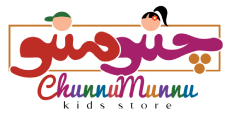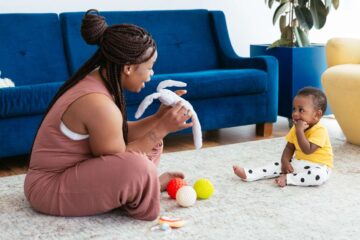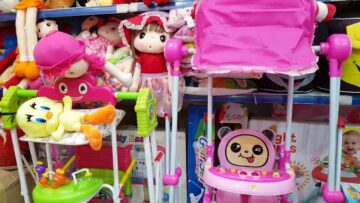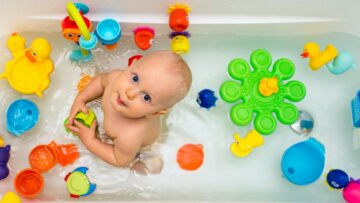
In a world dominated by technology, it is crucial to encourage creativity in children from an early age. Creativity not only enhances problem-solving skills but also fosters innovation and critical thinking. Toys play a significant role in shaping a child’s development, and choosing the right ones can impact their creative abilities. In this article, we will explore toys that promote creativity in Pakistani children, allowing them to explore their imagination and unlock their full potential.
Building Blocks and Construction Sets
Building blocks and construction sets are classic toys online that encourage creativity and imagination. They allow children to design and build their structures, fostering spatial awareness, problem-solving, and fine motor skills. In Pakistan, popular building block brands such as LEGO, Mega Bloks, and K’Nex offer various sets that cater to various age groups and skill levels. These toys empower children to think outside the box, experiment with different designs, and develop their architectural prowess.
Arts and Crafts Kits
Arts and crafts kits are excellent tools for nurturing creativity in children. These kits typically include paints, markers, colored pencils, papers, and craft supplies. They allow children to express themselves through various artistic mediums, such as painting, drawing, sculpting, and collage-making. Pakistani children can explore their cultural heritage by incorporating traditional art forms, such as truck art or block printing, into their creations. Brands like Crayola, Faber-Castell, and ArtSkills offer various arts and crafts kits suitable for different age groups, enabling children to unleash their inner artists.
Role-Play and Pretend Play Toys
Role-play and pretend-play toys encourage imaginative thinking and social interaction. These toys include kitchen sets, doctor kits, toolsets, and dollhouses. Pakistani children can engage in imaginative play that reflects their cultural environment and traditions. Role-playing allows children to step into different roles, fostering empathy, creativity, and storytelling abilities. Brands like Fisher-Price, Melissa & Doug, and KidKraft offer a diverse range of role-play toys catering to Pakistani children’s interests and preferences.
STEM Toys
STEM (Science, Technology, Engineering, and Mathematics) toys have gained popularity worldwide for their ability to promote critical thinking and problem-solving skills. Pakistani children can benefit from STEM toys that align with their cultural context. These toys introduce children to scientific concepts, engineering principles, and mathematical reasoning in a hands-on and engaging manner. Brands like Snap Circuits, K’Nex, and LittleBits offer STEM kits that allow children to build robots, conduct simple experiments, and explore the world of coding. By incorporating STEM toys into playtime, children can develop a passion for science and technology while honing their creativity.
Musical Instruments
Music is a universal language that transcends borders and cultures. Introducing musical instruments to Pakistani children can stimulate their creativity and provide an avenue for self-expression and Toys That Promote Creativity. Instruments like the piano, guitar, tabla, and harmonium are not only sources of entertainment but also help children develop a sense of rhythm, coordination, and emotional expression. Parents can explore local music shops or online platforms to find suitable musical instruments for their children, allowing them to immerse themselves in the rich musical heritage of Pakistan.
Puzzle Games and Brain Teasers
Puzzle games and brain teasers are excellent toys for enhancing problem-solving skills and critical thinking. These toys challenge children to think analytically, improve memory retention, and exercise patience. Pakistani children can enjoy traditional puzzle games like Rubik’s Cube, tangrams, jigsaw puzzles, local brain teasers, and riddles specific to their cultural context. These toys provide a healthy mental workout while stimulating creativity and logical reasoning.
















